Decoding Japanese convenience store take away food: what you need to know – Part 1
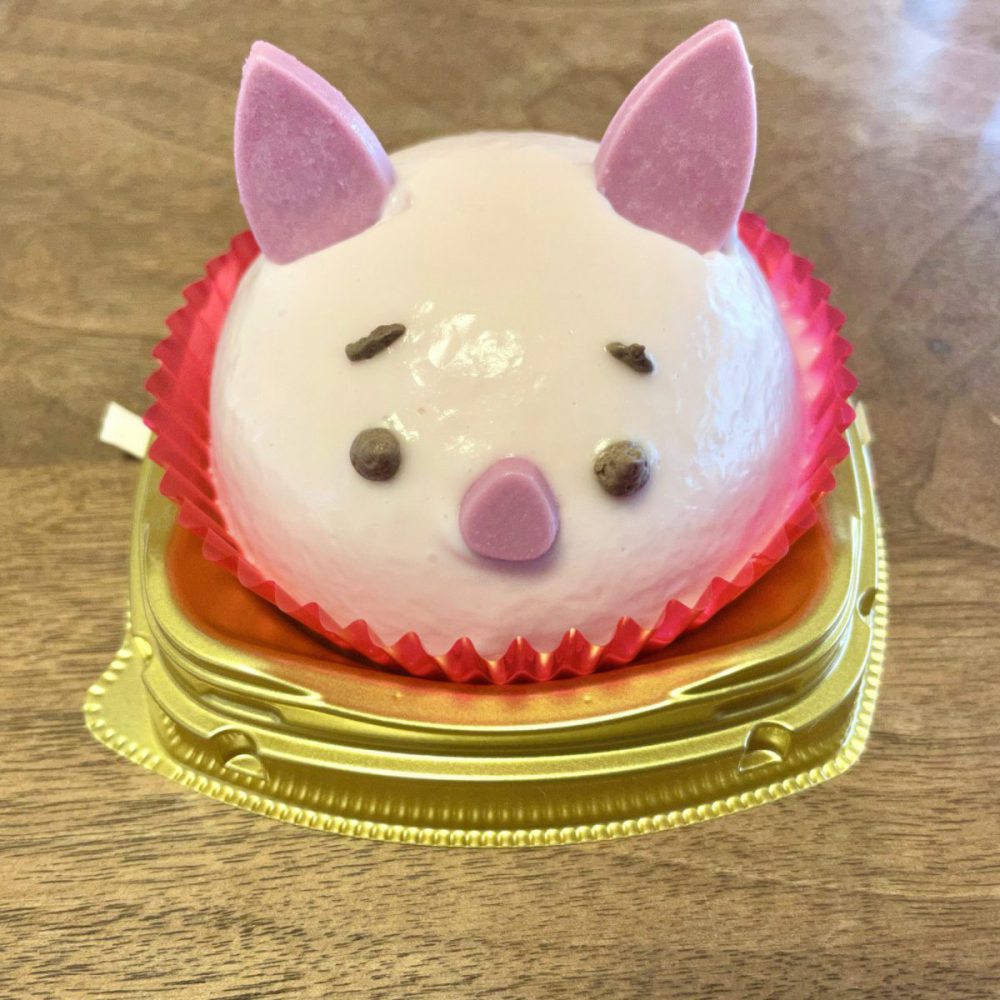
There must be several convenience stores such as, 7-ELEVEN, City Convenience Store, and Allied Mart in your city, right?
I’m sure most of you have visited a convenience store at least once in your life.
While convenience stores were originally from the U.S., did you know that the store format that is now so popular around the world came from Japan?
7-ELEVEN, perhaps one of the convenience stores close to where you live, is a Japanese brand.
There are so many convenience stores in Japan, you will no doubt encounter one wherever you are. There are 58,340 convenience stores in Japan, as of March 2019. If you’re in a city like Tokyo or Kyoto, you’ll see there’s a store almost on every block. In comparison, Australia has around 8,000 convenience stores.
In Japan, convenience stores have evolved amazingly. Especially when it comes to the variety of food and beverages on offer – it’s safe to say that Japanese convenience stores are one step ahead in the future.
When Japanese people look for a place to live in urban areas, they will often consider having a convenience store within a 5-minute walk, as an essential requirement. Why? Because having a convenience store so close to home means you don’t have to worry about what to eat even if there isn’t a supermarket or restaurants nearby. You may wonder how that is possible.
In this two-part series, I will showcase a selection of snacks and meals to feast on all available to purchase from a convenience store.
Karaage Kun
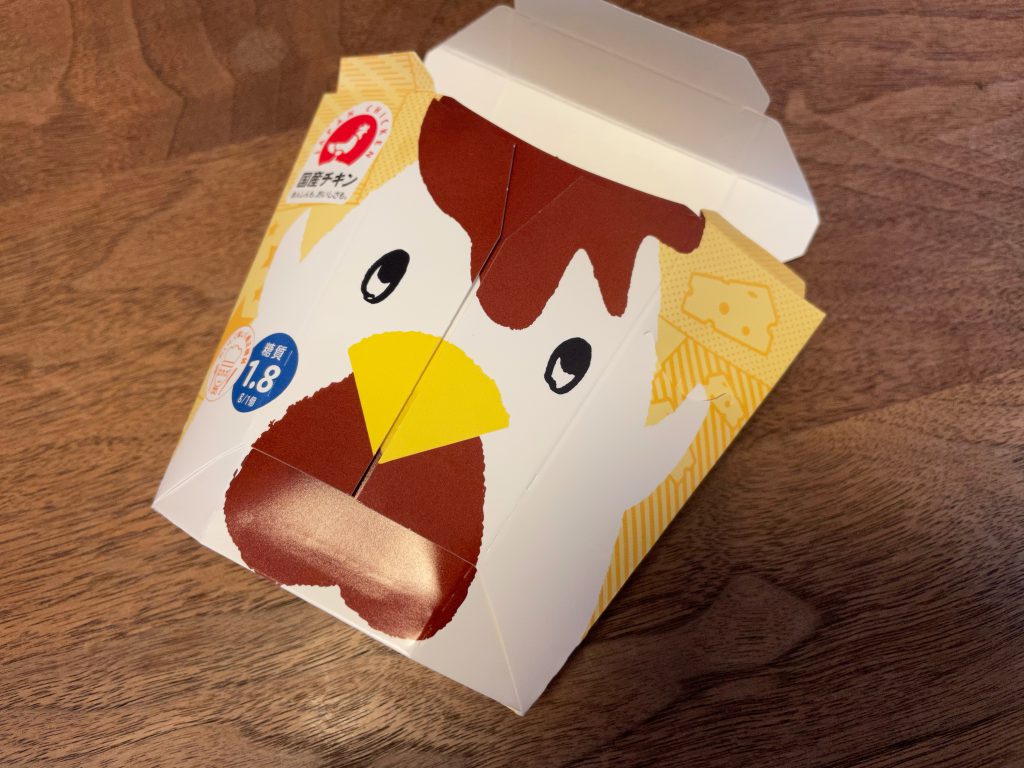
One of the main differences between Australian and Japanese convenience stores would be the range of “hot snacks” on offer.
At Japanese convenience stores, you can find a wide range of snacks from Chinese dim sums (mainly steamed buns) to hot chips. Among them, one of the most popular snacks is “Karaage-Kun”.
In 1986, Japanese convenience store chain LAWSON started selling karaage (Japanese fried chicken) with the concept of “fried chicken that can be eaten as a snack anytime, anywhere”. In January 2020, LAWSON celebrated their 33rd anniversary of launching their famous “Karaage-Kun” fried chicken, with over 3.3 billion servings sold over the years.
There are three basic flavours – Regular, Red, and Cheese – always available year-round. Additionally, there are unique flavours only available at certain times of the year or specific regions of Japan, even flavours based on or in collaboration with other products, anime and movies. With a total of 273 flavours from the past and present, “Karaage-Kun” is LAWSON’s signature hot snack.
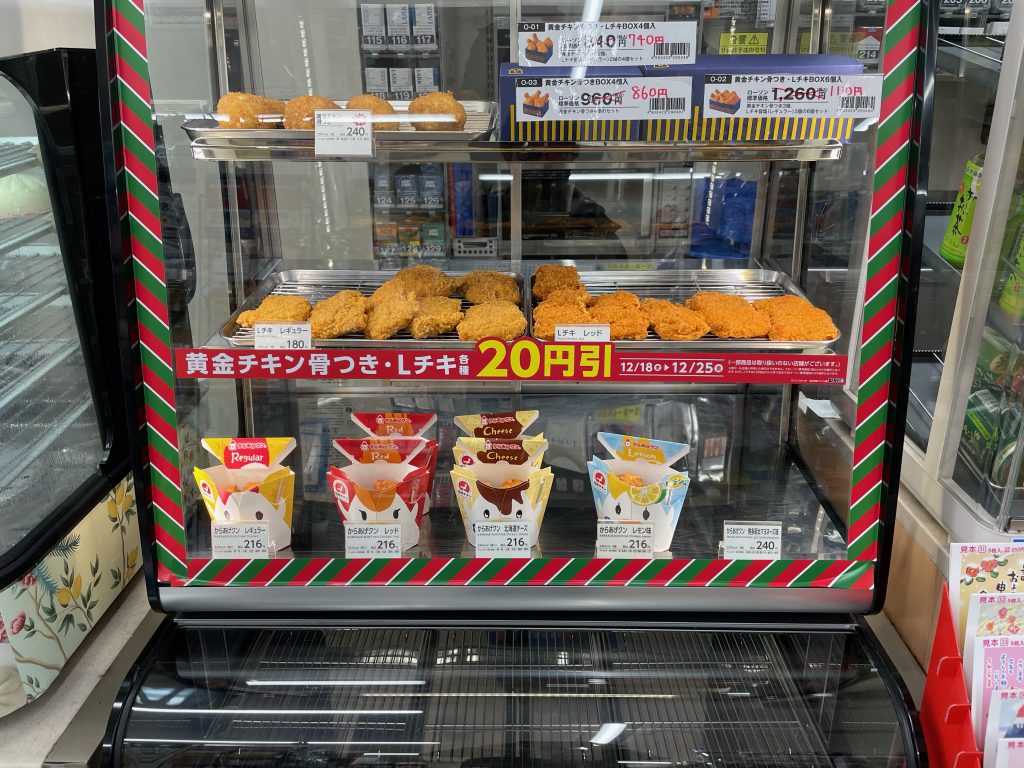
Each pack comes with six pieces of karaage and costs 216 yen (tax included).
The packaging is simple and made by folding a sheet of paper, just like origami, and has a lid to cover it up so you can keep it in your bag (although I don’t know a single Japanese person who does this).
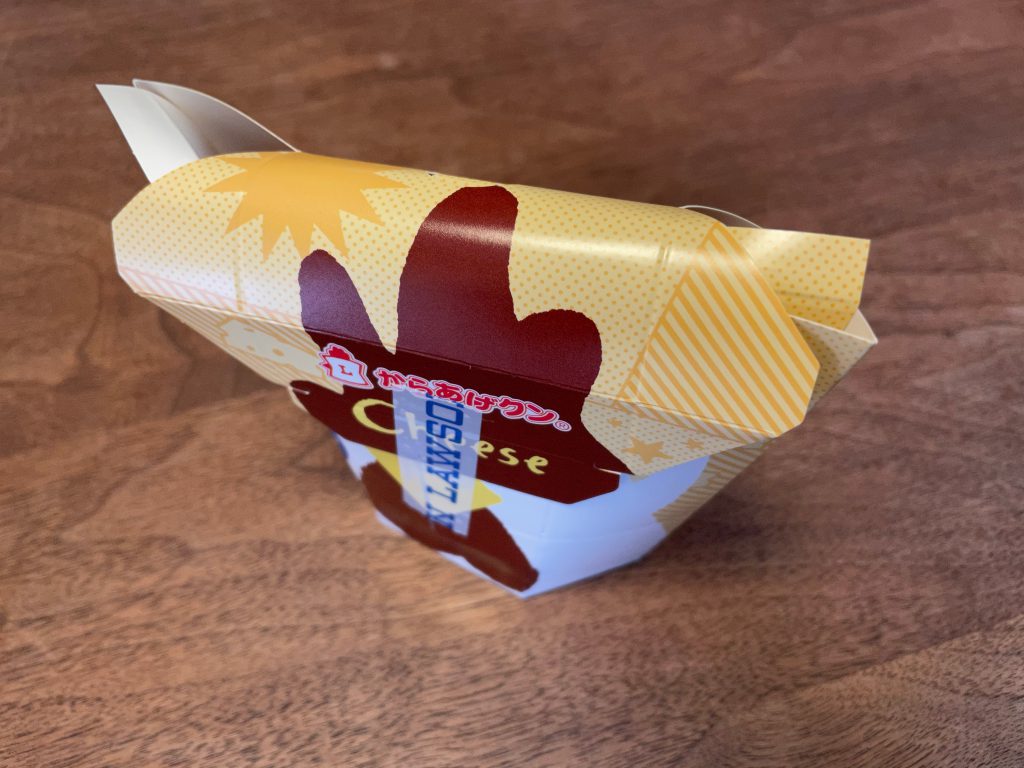
Interestingly, the character illustrated on the front of the packaging is not a chicken but a fairy. Every flavour comes with its own character, and they even have a detailed backstory, like family history and how they are related to each other, etc. You’d expect no less from the world’s leading anime powerhouse nation, Japan.
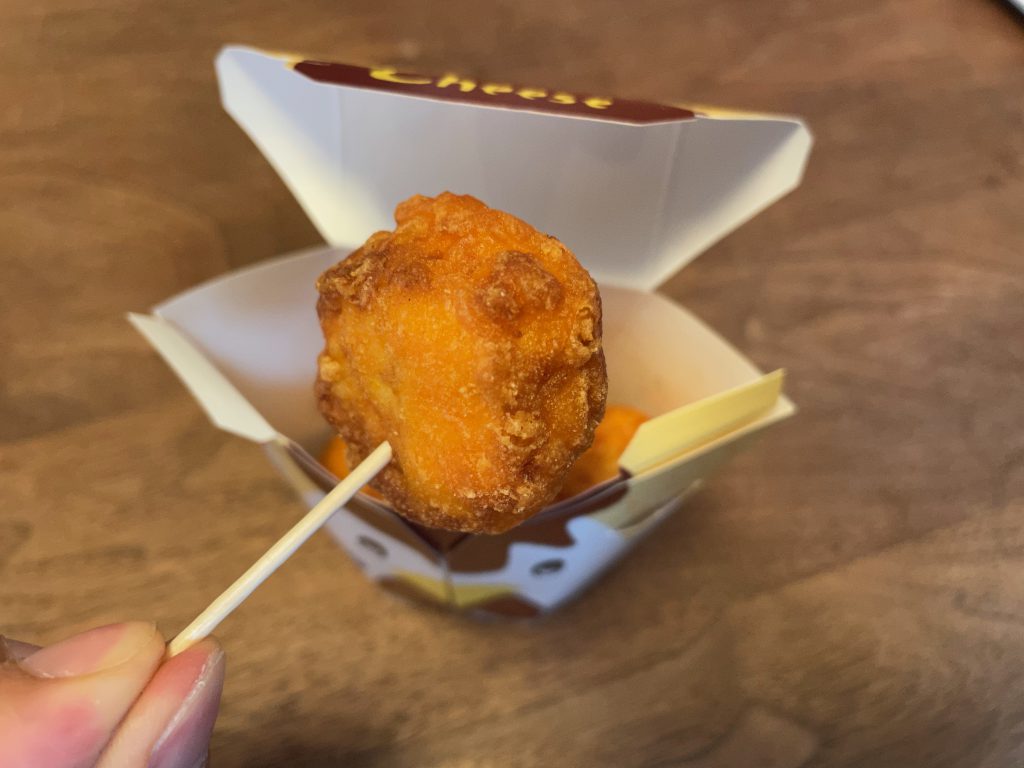
It’s closer to chicken nuggets rather than karaage.
I tried the cheese flavour. The cheese is blended in with the chicken, giving it a rich flavour without the need for dipping sauces like tomato or BBQ sauce.
Convenience store sweets
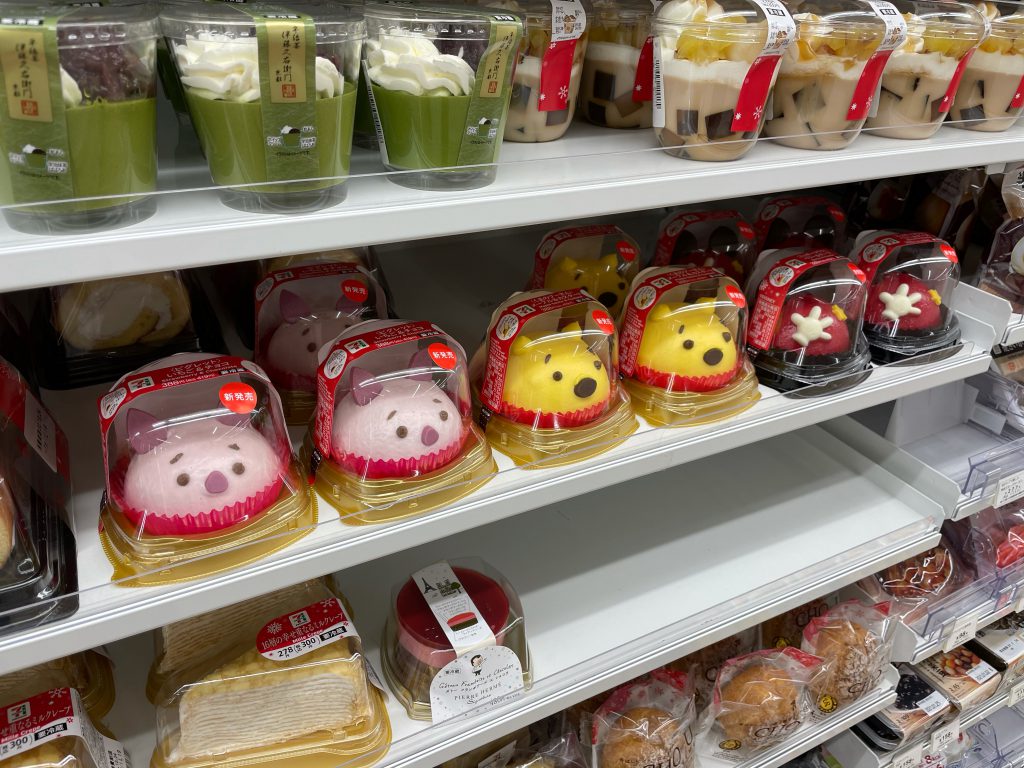
Convenience stores in Japan have a tremendous variety of quality desserts. If you like sweets, you will go crazy. Each convenience store is engaged in a fierce battle over the development of these desserts.
For Christmas 2020, 7-ELEVEN released three new cakes in collaboration with Disney characters: “Mickey Mouse Berry & Cheese”, “Winnie the Pooh Maple & Custard”, and “Piglet Strawberry & Chocolate.”
I can imagine many are saying they are too cute to eat! Each character has a different flavour: Mickey is berry and cheese, Pooh is maple and custard, and Piglet is strawberry and chocolate.
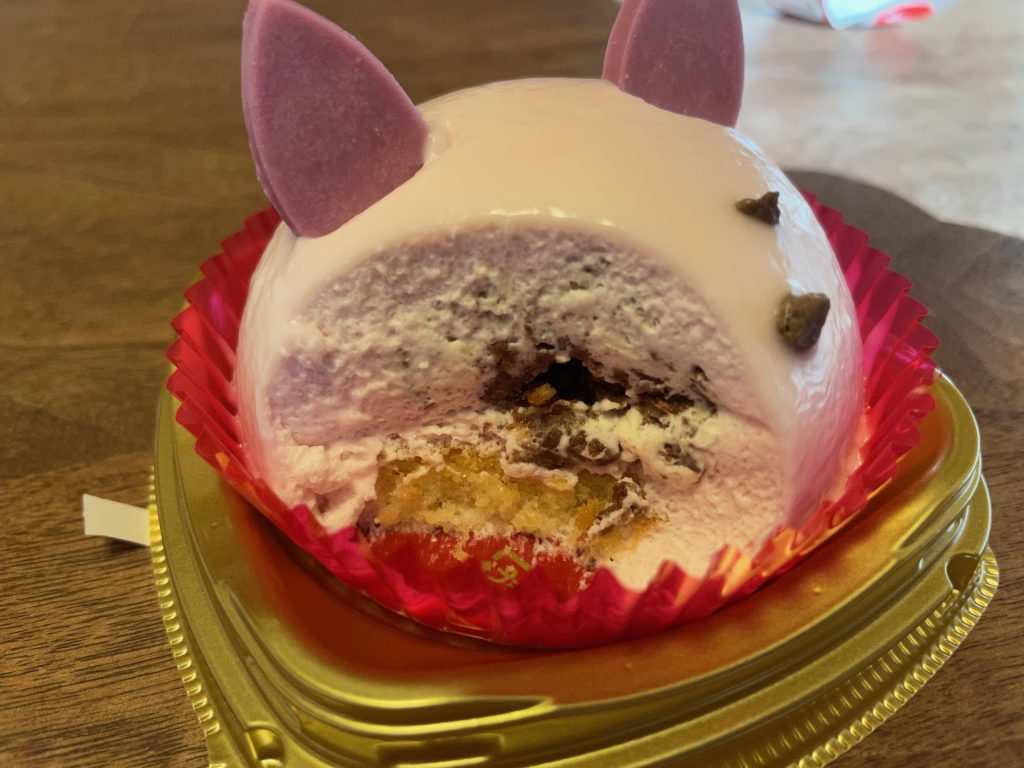
This time I tried the “Piglet Strawberry & Chocolate” cake. He must have known he was about to be eaten by the look on his face.
Potato chips fried in olive oil
In Japan, there are many convenience store brands offering a wide variety of products aimed at different target customers. One notable brand is NATURAL LAWSON. As the name suggests, their brand concept is based on supporting a beautiful, healthy and comfortable lifestyle.
The majority of food products on offer do not contain synthetic preservatives and using ingredients sourced from Japan. In addition to healthy obento boxes and desserts, they also sell bread freshly baked in-store. They also sell everyday items and daily necessities made from 100% natural plant materials, additive-free and ingredients from Japan. You can purchase NATURAL LAWSON snacks, food and drinks at the regular LAWSON stores too.
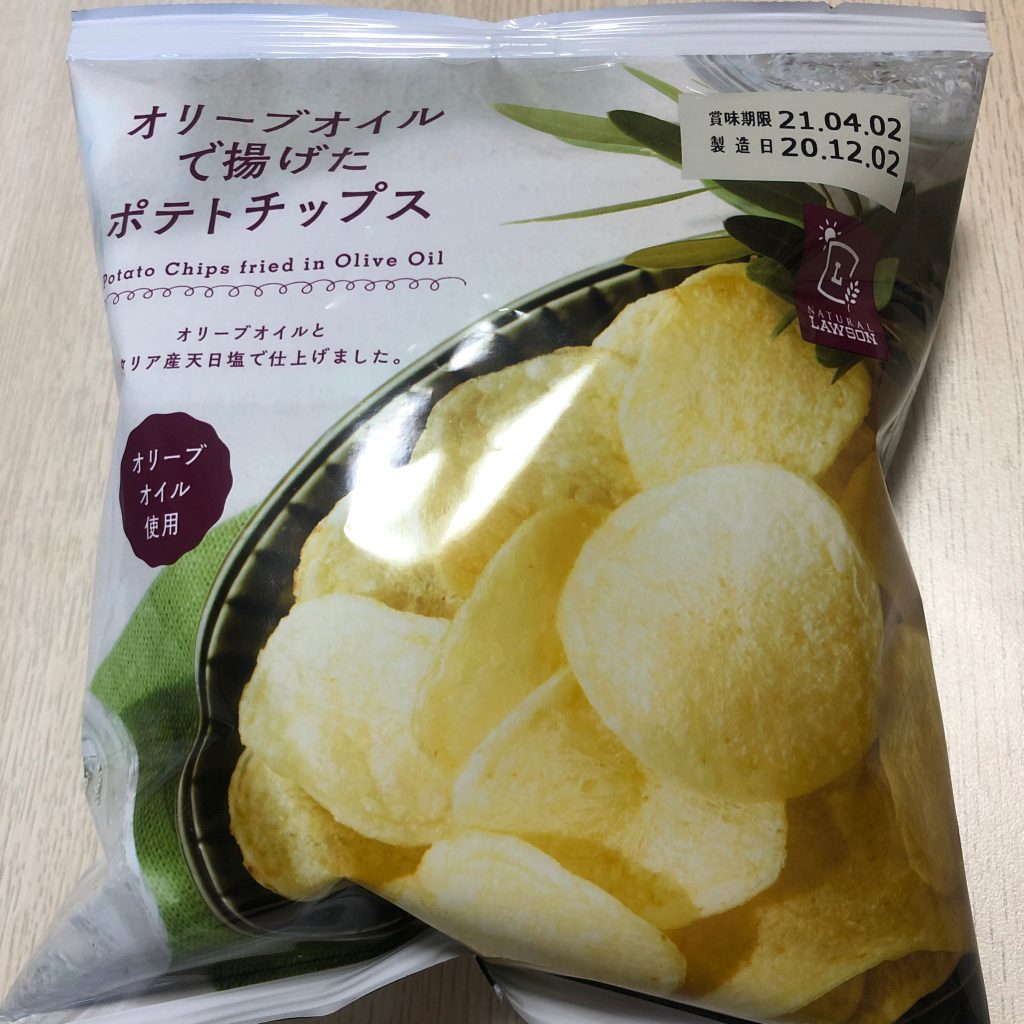
No matter how health-conscious you are, sometimes you get cravings you just can’t shake off. In Japan, people opt to use olive oil for its health benefits, including NATURAL LAWSON’s “Potato Chips fried in Olive Oil”. These chips contain 20% less oil compared to the regular LAWSON brand chips. So you can feel a little less guilty if you decide to cave in to those cravings.
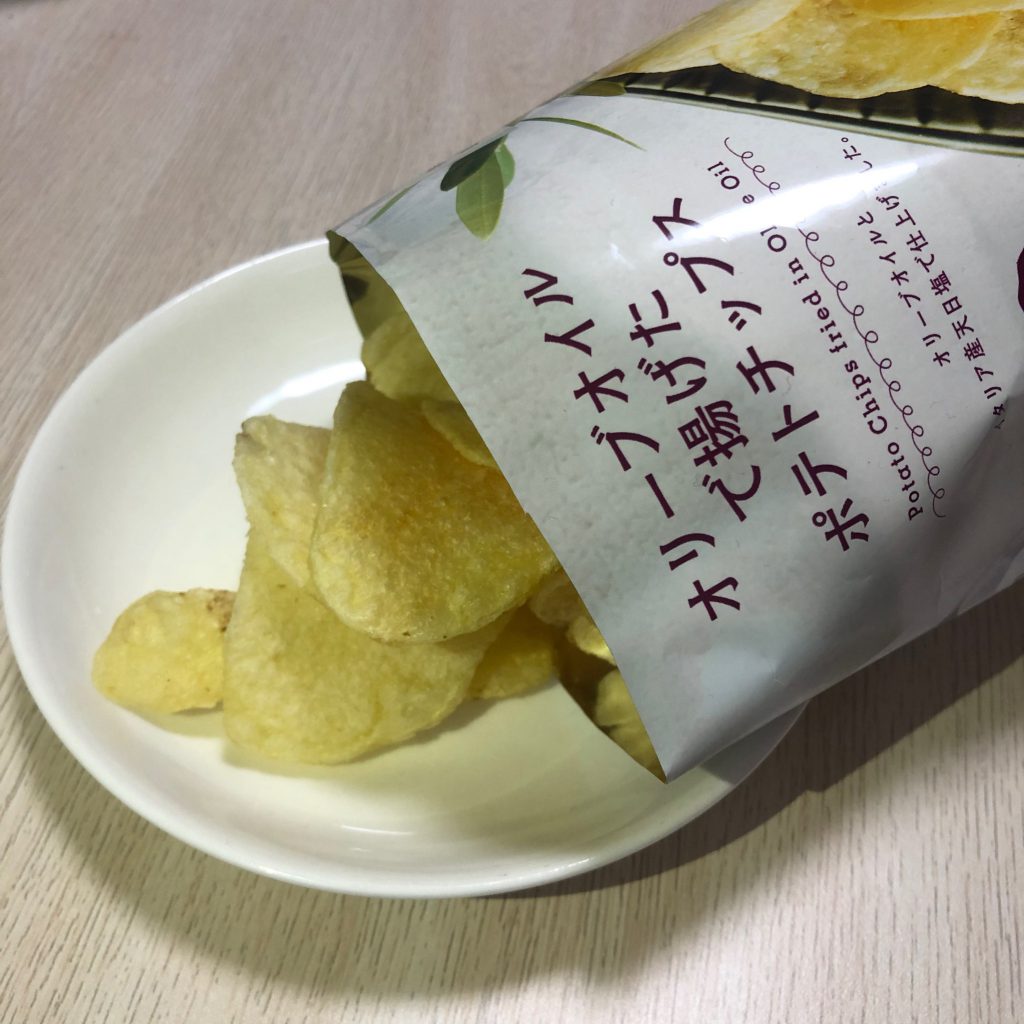
The smaller portion size is a bonus to those who are health conscious and wanting to enjoy a snack. You’ll also notice the chips are thinner compared to traditional chips.
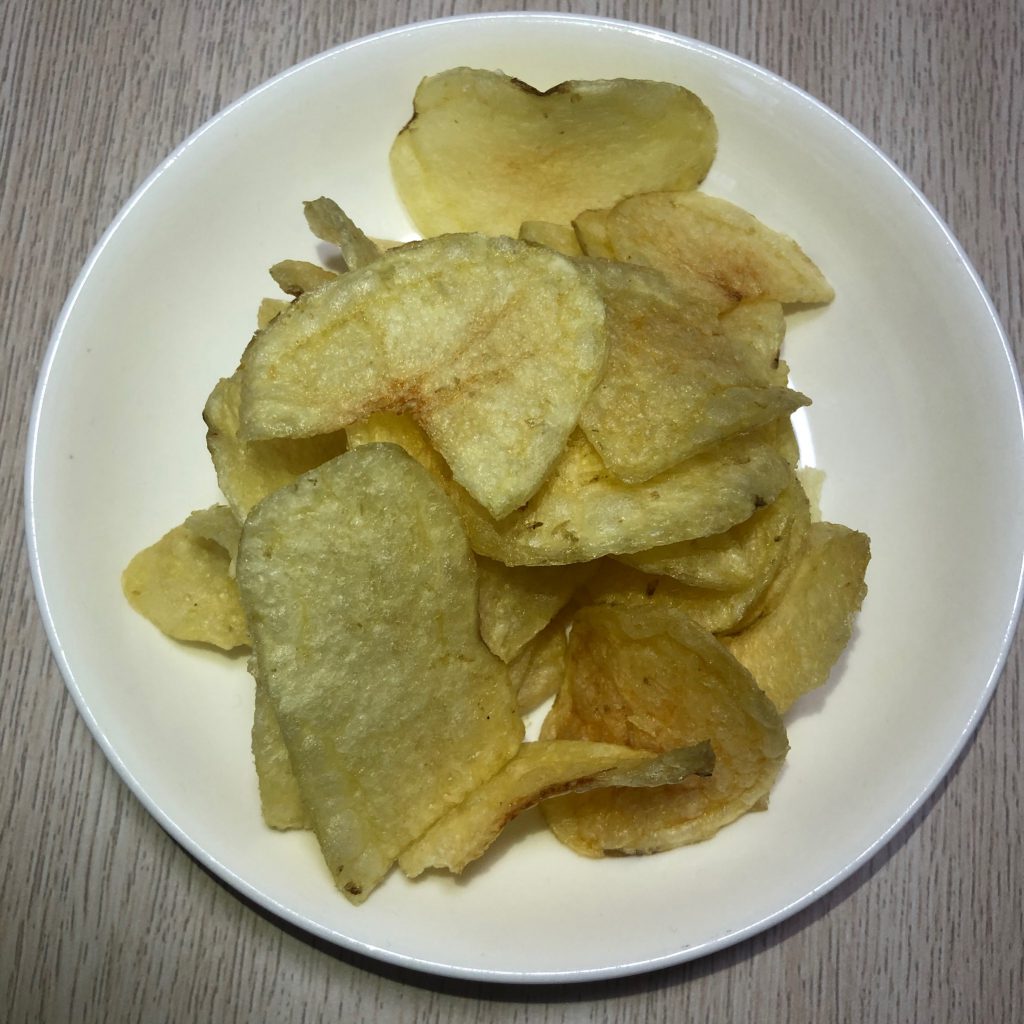
The thinness, combined with the crunchiness adds to the satisfaction factor. But as with all types of chips, it’s hard just to have a couple of these chips, and you’ll end up finishing an entire pack before you know it. Fortunately, you won’t feel sickly over full thanks to these light and crispy chips fried in olive oil.
In addition to the plain chips seasoned with salt, there are other healthier snack options with a range of rich flavours including truffles, made by Japanese confectionery brands available at NATURAL LAWSON.
